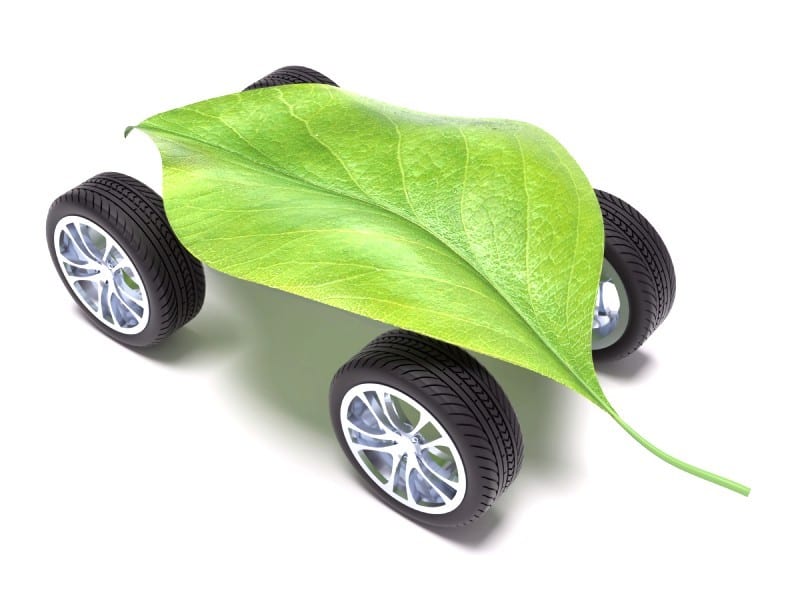
What is an alternative fuel for cars
Content
The gasoline internal combustion engine has revolutionized the development of self-propelled vehicles. Over time, cars have moved from luxury to necessity.
Modern consumption of natural resources has increased so much that stocks do not have time to replenish. This forces humanity to develop alternative fuels. In this review, we will consider ready-made developments that are used on many vehicles.
Alternative fuels
In addition to declining oil reserves, the development of alternative fuels has several other reasons.

One of them is environmental pollution. During combustion, gasoline and diesel fuel emit harmful substances that destroy the ozone layer and can cause respiratory diseases. For this reason, scientists are still working on creating a clean energy source that would have minimal impact on the environment, both at the extraction stage and during the operation of the engine.
The second reason is the energy independence of the state. Everyone knows that oil reserves are only some states underground. Everyone else has to put up with the pricing policy that monopolists set. The use of alternative fuels will help to get out of the economic oppression of such powers.
Under the United States Energy Policy Act, alternative fuels are:
- Natural gas;
- Biofuel;
- Ethanol;
- Biodiesel;
- Hydrogen;
- Electricity;
- Hybrid installation.
Of course, each type of fuel has its positive and negative factors. Based on this information, it will be easier for the motorist to navigate, in which he can compromise by acquiring a unique vehicle.
Natural gas
Ubiquitous gasification has prompted engineers to think about whether it can be used as an alternative fuel. It turned out that this natural resource completely burns out and does not emit the same harmful substances as gasoline or diesel.

In the territory of the post-Soviet space, a motor converted to gas has become a familiar phenomenon. Some even buying an economical car, ask the question: is there any point in translating it into gas.
Recently, some manufacturers have been equipping cars with gas equipment from the factory. An example of this is the Skoda Kamiq G-Tec. The manufacturer completes the model of an internal combustion engine running on methane. The advantages and disadvantages of propane and methane are described in another article. And also in one review tells about various modifications of gas equipment.
Biofuel
This category of alternative fuel appears as a result of processing crops. Unlike gasoline, gas and diesel fuel, biofuel does not emit carbon dioxide, which was previously in the bowels of the earth, during combustion. In this case, the carbon that the plants absorbed is used.
Due to this, greenhouse gases do not exceed the amount that is released during the life of all living organisms. The advantages of such a fuel include the possibility of refueling at ordinary gas stations.

The fuel in question is a category rather than a separate fuel. For example, in the processing of animal and vegetable waste, methane and ethanol are formed. Despite the cheapness and ease of preparation (oil rigs with sophisticated processing equipment are not needed), this fuel has its drawbacks.
One of the significant drawbacks is that in order to produce a sufficient amount of fuel, large plantations are required where special plants can be grown that contain a high percentage of suitable substances. Such crops deplete the soil, which makes it incapable of giving a quality crop to other cultivated plants.
ethanol
When developing internal combustion engines, the designers tested different substances, on the basis of which the unit could work. And alcohol is not the last in the list of such substances.
The advantage of ethanol is that it can be obtained without depleting the natural reserves of the earth. For example, it can be obtained from plants with a high content of sugar and starch. Such crops include:
- Sugar cane;
- Wheat;
- Corn;
- Potato (used less often than previous ones).

Ethanol can rightfully take one of the first places in the ranking of cheap alternative fuels. For example, Brazil has experience in making this type of alcohol. Thanks to this, a country can have energy independence from the states in whose territory natural gas or oil is extracted.
To operate on alcohol, the engine must be made of metals resistant to this substance. And this is one of the significant drawbacks. Some automakers create engines that can run on both gasoline and ethanol.
Such modifications are called FlexFuel. A feature of such power units is that the ethanol content in gasoline can vary from 5 to 95 percent. The designation of such vehicles uses the letter E and the maximum permissible percentage of alcohol in the fuel.

This fuel is gaining popularity due to the tightening of gasoline esters. One of the disadvantages of the substance is the formation of water condensate. Also, during combustion, they emit less thermal energy, which significantly reduces the engine power if it worked on gasoline.
Biodiesel
Today this type of alternative fuel is one of the promising. Biodiesel is made from plants. Sometimes this fuel is called methyl ether. The main raw material used for the manufacture of fuel is rapeseed. However, this is not the only culture that is a resource for creating biodiesel. It can be made from oils of the following cultures:
- Soy;
- Sunflower;
- Palm trees.
The esters of oils, like alcohols, have a devastating effect on the materials from which ordinary motors are made. For this reason, not every manufacturer wants to adapt their products to this fuel (low interest in such cars, which reduces the reason for creating a large batch, and producing limited versions on alternative fuel is not profitable).

Recently, some manufacturers allow you to mix petroleum products with biofuels. It is believed that a 5 percent fat ester content will not harm the motor.
Agricultural waste development has a significant drawback. For the sake of economic benefits, many farmers can retrain their land for growing exclusively those crops from which biofuels are made. This can contribute to a significant increase in food prices.
Hydrogen
They also try to use hydrogen as cheap fuel. While such developments are too expensive for the average user, but it seems that such developments have a future.
Such an element is of interest because it is the most accessible on the planet. The only waste after combustion is water, which, after simple cleaning, can even be drunk. In theory, the combustion of such fuel does not form greenhouse gases and substances that destroy the ozone layer.
However, this is still in theory. Practice shows that the use of hydrogen is much more harmful than gasoline in a car without a catalyst. The problem is that a mixture of not pure air and hydrogen burns out in the cylinders. In the working chamber of the cylinder there is a mixture of air with nitrogen. And this element during oxidation forms one of the most harmful substances - NOx (nitric oxide).

Another problem in the use of hydrogen is its storage. To use gas in a car, the tank must be made either in the form of a cryogenic chamber (-253 degrees so that the gas does not self-ignite), or a cylinder designed for a pressure of 350 atm.
Another caveat is the production of hydrogen. Despite the fact that there is a lot of this gas in nature, but for the most part it is in some kind of compound. In the process of hydrogen production, a fairly large amount of carbon dioxide is released into the atmosphere (when water and methane are combined, this is the easiest way to get hydrogen).
Given the above factors, hydrogen engines remain the most expensive of all modifications operating on alternative fuel.
Electricity
The most popular are electric cars. They do not pollute the environment, since the electric motor has no exhaust at all. Such cars are silent, very comfortable and powerful enough (for example, Nio EP9 accelerates to hundreds in 2,7 seconds, and the maximum speed is 313 km / h).

Thanks to the features of the electric motor, the electric car does not need a gearbox, which reduces acceleration time and facilitates the driving process. It would seem that such vehicles have only pluses. But in fact, such cars are not without negative aspects, because of which they stand a position below the classic cars.
One of the significant drawbacks is the battery capacity. One charge in the highest quality performance lasts a maximum of 300 km. To "refuel", even using fast charging, you need to spend several hours.
The larger the battery capacity, the heavier the car. Compared to a conventional model, an electrical analogue can weigh 400 kilograms more.
To increase the driving distance without recharging, manufacturers are developing sophisticated recovery systems that collect tiny amounts of energy (for example, when descending from a hill or during braking). However, such systems are extremely expensive, and their performance is not so noticeable.
The only option that allows you to recharge the battery while driving is to install a generator powered by the same gasoline engine. Yes, this allows you to significantly save on fuel, but for the system to function, you still have to resort to classic fuel. An example of such a car is the Chevrolet Volt. It is considered a full-fledged electric vehicle, but with a gasoline generator.

Hybrid installation
As a compromise that minimizes the consumption of classic fuel, manufacturers equip the power unit with hybrid units. It can be a soft or full hybrid system.
The main power unit in such models is a gasoline engine. As an addition, a low-power motor (or several) and a separate battery are used. The system can help the main engine at startup to minimize the load and, as a result, the amount of harmful substances in the exhaust.

Other modifications of hybrid cars can travel some distance exclusively on electric traction. This may come in handy if the driver has not calculated the distance to the gas station.
The disadvantages of hybrids include the impossibility of energy recovery while the car is in traffic. To save electricity, you can turn off the system (it starts very quickly), but this negatively affects the expansion joints of the motor.
Despite the shortcomings, hybrid versions of famous cars are gaining popularity. For example, Toyota Corolla. The petrol version in the combined cycle consumes 6,6 liters per 100 km. The hybrid analogue is twice as economical - 3,3 liters. But at the same time, it is almost 2,5 thousand dollars more expensive. If such a car is bought for the sake of fuel economy, then it must be used very actively. And then such a purchase will justify itself only after a few years.

As you can see, the search for alternative fuels is yielding results. But due to the high cost of development or extraction of resources, these types of energy carriers so far remain several positions lower than conventional fuels.
Questions and answers:
What fuels are classified as alternative fuels? Alternative fuels are considered: natural gas, electricity, biofuels, propane, hydrogen, ethanol, methanol. It all depends on which motor is used in the car.
What year did gasoline appear? Gasoline production began in the 1910s. Initially, it was a by-product of the distillation of oil, when kerosene was created for kerosene lamps.
Can oil be synthesized? Synthetic oil can be obtained by adding hydrogen-based catalysts to coal and at a pressure of about 50 atmospheres. Relatively cheap coal mining methods make energy-saving technology.
